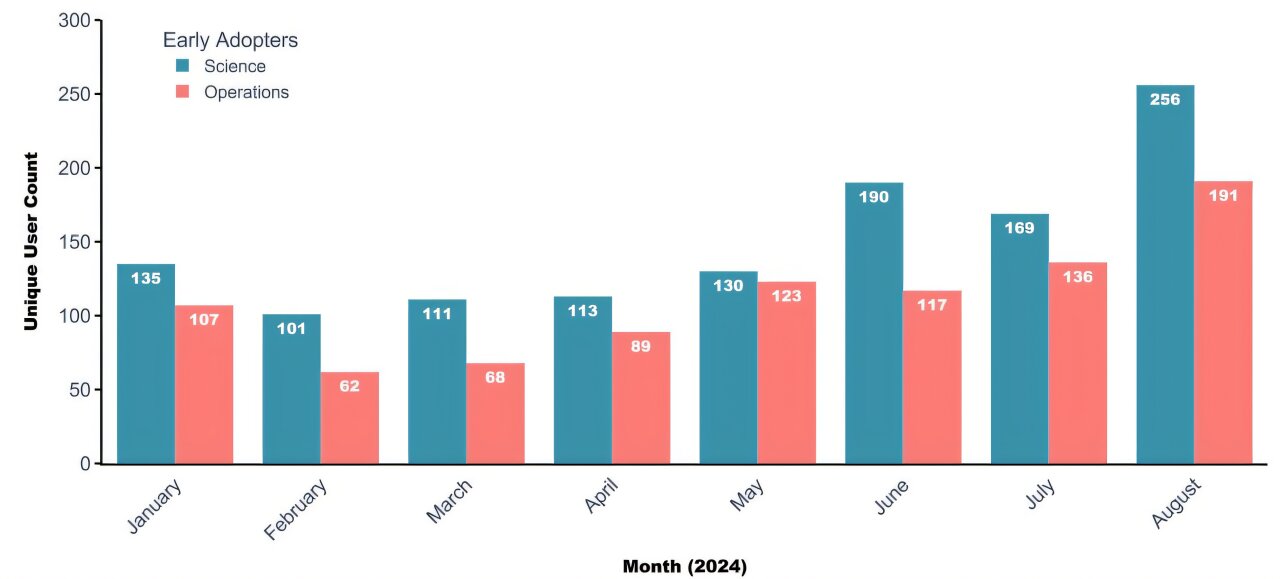AI at Work: How ChatGPT is Reshaping Scientific Workflows

In a groundbreaking internal study, researchers at Argonne National Laboratory delved into the usage patterns of Argo, their innovative in-house generative artificial intelligence chatbot. The investigation aimed to understand how employees are integrating this cutting-edge AI tool into their daily workflow and professional tasks.
The research explored the ways Argonne staff members are leveraging Argo's capabilities, examining the frequency, context, and potential impact of AI-assisted communication and problem-solving within the organization. By analyzing employee interactions with the chatbot, the researchers sought to gain insights into the practical applications and potential benefits of generative AI in a research-driven environment.
This study represents a significant step in understanding how advanced AI technologies are being adopted and utilized in professional settings, particularly within a prestigious scientific research institution like Argonne National Laboratory.
